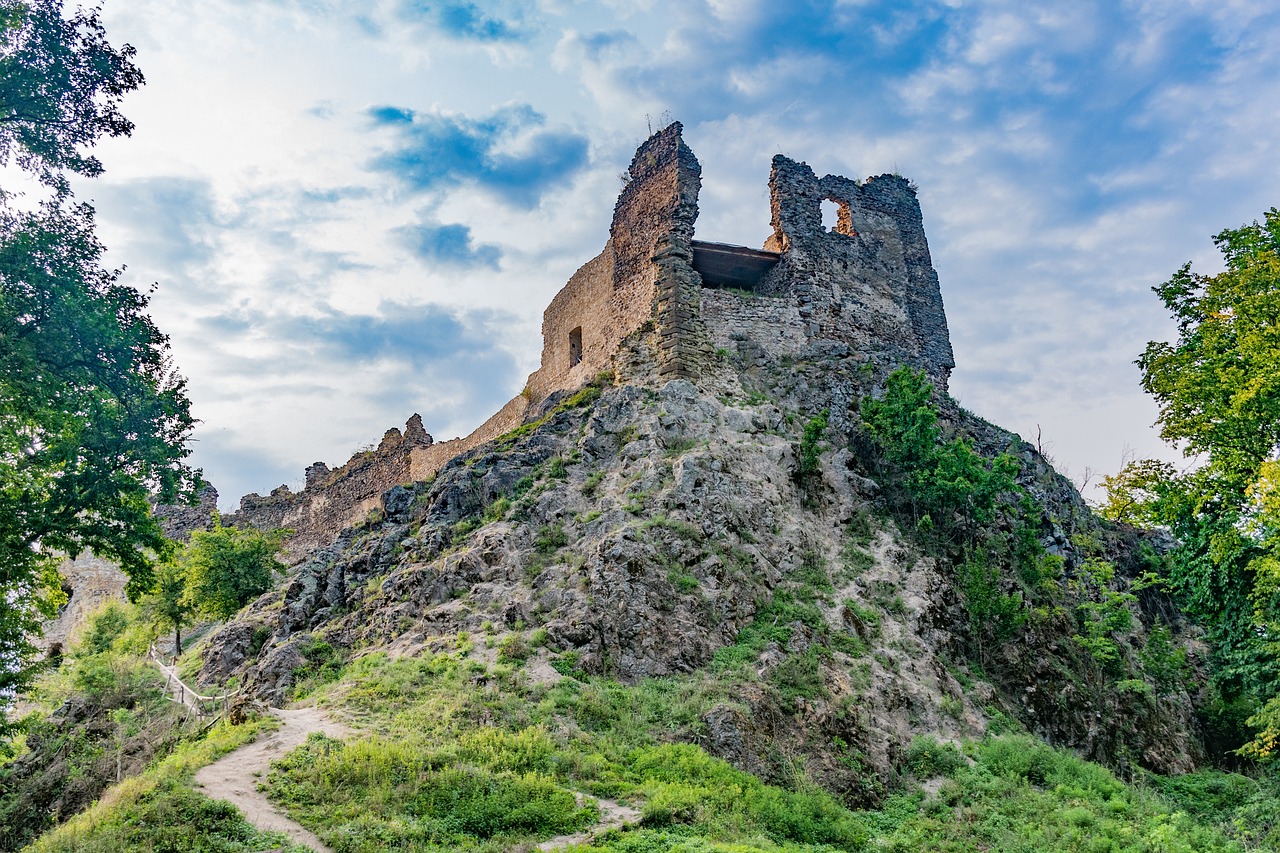Slovakia Video
Cultural Etiquette: Doing Business in Slovakia
Slovakia, located in Central Europe, is a country known for its rich history, beautiful landscapes, and strong business environment. If you are planning to do business in Slovakia, it is essential to understand the cultural etiquette and norms that govern business interactions in this country. This article will provide you with a comprehensive guide on how to navigate the business landscape in Slovakia successfully.
Business Culture
Doing business in Slovakia requires a good understanding of the local business culture. Slovaks value professionalism, punctuality, and respect for hierarchy. It is important to maintain a formal and professional demeanor during business meetings and interactions.
- Punctuality: Being on time for meetings is highly valued in Slovakian business culture. It is considered disrespectful to arrive late, so make sure to plan your schedule accordingly.
- Dress Code: Slovaks generally dress formally for business meetings. Men usually wear suits and ties, while women opt for professional attire. It is advisable to dress conservatively until you become familiar with the company’s dress code.
- Handshakes: When greeting your Slovak business counterparts, a firm handshake is appropriate. Maintain eye contact and address individuals using their professional titles and surnames.
- Business Cards: Exchanging business cards is a common practice in Slovakia. Ensure that your business cards are printed in both English and Slovak, with the Slovak side facing up when presenting it.
- Language: While English is widely spoken in the business community, it is respectful to learn a few basic Slovak phrases or hire an interpreter to facilitate communication.
Building Relationships
Building strong relationships is crucial for successful business dealings in Slovakia. Slovaks prefer to do business with people they know and trust. Take the time to establish personal connections and invest in relationship-building activities.
- Small Talk: Engaging in small talk before diving into business matters is customary in Slovakia. Topics such as family, hobbies, and local culture are appropriate conversation starters.
- Business Entertainment: Inviting your Slovak business partners for a meal or a drink is a common way to build relationships. It is customary for the host to pay the bill, but be prepared for your guests to reciprocate in the future.
- Gift Giving: While not mandatory, bringing a small gift from your home country or a token of appreciation is a thoughtful gesture. Gifts should be modest and not overly expensive.
- Follow-up: After meetings or negotiations, it is important to follow up with a thank-you email or a handwritten note expressing your appreciation for the opportunity to meet.
Business Meetings
When attending business meetings in Slovakia, it is essential to be well-prepared and demonstrate professionalism. Here are some key points to keep in mind:
- Agenda: Provide a detailed agenda in advance to ensure that all participants are prepared and aware of the meeting objectives.
- Hierarchy: Slovakian business culture respects hierarchy, so it is important to address senior executives first and allow them to lead the conversation.
- Decision Making: Slovaks prefer a consensus-based decision-making process. Be patient and allow sufficient time for discussions and input from all participants.
- Direct Communication: Slovaks tend to communicate directly and appreciate honesty. However, it is important to maintain a respectful and diplomatic tone during discussions.
- Meeting Follow-up: After the meeting, send a summary email outlining the key points discussed, decisions made, and action items assigned to each participant.
Negotiations and Contracts
Negotiating business deals in Slovakia requires a diplomatic and patient approach. Here are some aspects to consider during negotiations:
- Building Trust: Establishing trust and rapport is crucial before entering into negotiations. Focus on relationship-building activities and demonstrate a genuine interest in your Slovak counterparts’ needs.
- Conservative Approach: Slovaks tend to be conservative and risk-averse in their business dealings. Present your proposals with a solid business case, emphasizing long-term benefits and minimizing potential risks.
- Legal Advice: Engage local legal counsel to review contracts and ensure compliance with Slovakian laws and regulations.
- Negotiation Style: Slovaks prefer a collaborative negotiation style rather than aggressive or confrontational approaches. Be patient and willing to compromise to achieve mutually beneficial outcomes.
- Written Contracts: It is important to have detailed, written contracts that clearly outline the terms and conditions of the agreement. Contracts should be precise and leave no room for ambiguity.
Business Communication
Effective communication is vital for successful business interactions in Slovakia. Here are some key points to consider:
- Language: While English is commonly spoken in the business community, it is advisable to have important documents translated into Slovak to ensure clarity and avoid misunderstandings.
- Email Etiquette: Maintain a professional tone in your email communications. Be concise, clear, and prompt in your responses.
- Phone Calls: When making business calls, introduce yourself and state the purpose of the call. Always be respectful and mindful of the time difference if calling from a different time zone.
- Virtual Meetings: With the increasing use of virtual meetings, ensure that you have a stable internet connection and use appropriate video conferencing platforms. Dress professionally and maintain a focused and attentive demeanor.
- Non-Verbal Communication: Pay attention to non-verbal cues such as body language, facial expressions, and tone of voice. Slovaks value direct eye contact and expect active listening during conversations.
Business Dining
Business dining plays a significant role in building relationships and sealing business deals in Slovakia. Here are some dining etiquette tips:
- Table Manners: Familiarize yourself with basic table manners, such as using utensils correctly and keeping your napkin on your lap.
- Seating Arrangement: Wait for your host to indicate where you should sit. The guest of honor is usually seated at the head of the table.
- Toasting: Toasting is common during business meals. Raise your glass and make eye contact while toasting. It is polite to reciprocate the toast.
- Meal Choices: Follow your host’s lead when ordering food and beverages. It is customary to try local dishes and show appreciation for the cuisine.
- Table Conversations: Engage in polite and appropriate conversations during the meal. Avoid controversial or sensitive topics such as politics or religion.
Image 1 – Slovakia:

Business Etiquette
Understanding the business etiquette in Slovakia is essential for establishing successful business relationships. Here are some additional points to consider:
- Respect for Hierarchy: Slovaks value hierarchical structures within organizations. Show respect to senior executives and decision-makers.
- Business Hours: Typical business hours in Slovakia are from 8:00 AM to 4:30 PM, Monday to Friday. Avoid scheduling meetings during lunch breaks or on public holidays.
- Gifts and Hospitality: Gifts should be given and received with both hands. Avoid extravagant gifts, as they may be seen as inappropriate. Offer hospitality to your Slovak counterparts when they visit your country.
- Follow Local Laws and Regulations: Familiarize yourself with Slovakian business laws, regulations, and customs to ensure compliance and avoid any legal issues.
Image 2 – Slovakia:

Conclusion
Doing business in Slovakia can be a rewarding experience if you understand and respect the cultural etiquette. By following the guidelines outlined in this article, you will be better equipped to navigate the business landscape in Slovakia successfully. Remember to invest time in building relationships, maintaining professionalism, and adapting to local customs. With the right approach, you can establish strong business connections and achieve your goals in Slovakia.
Image 3 – Slovakia:

References
– Slovak Business Agency (sba.sk)
– Ministry of Foreign and European Affairs of the Slovak Republic (mzv.sk)
– Slovak Spectator (spectator.sme.sk)


